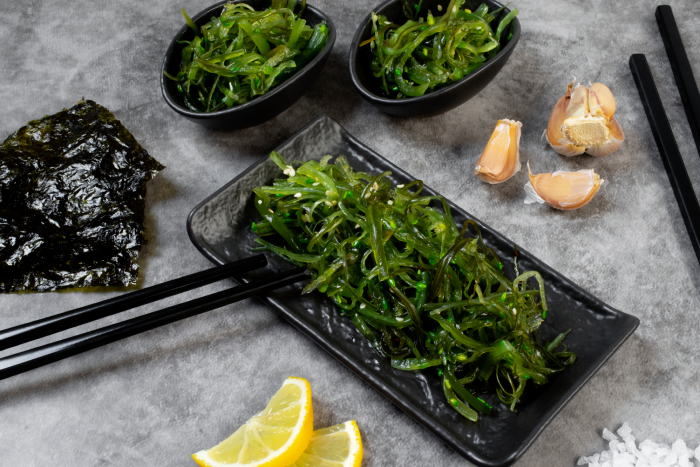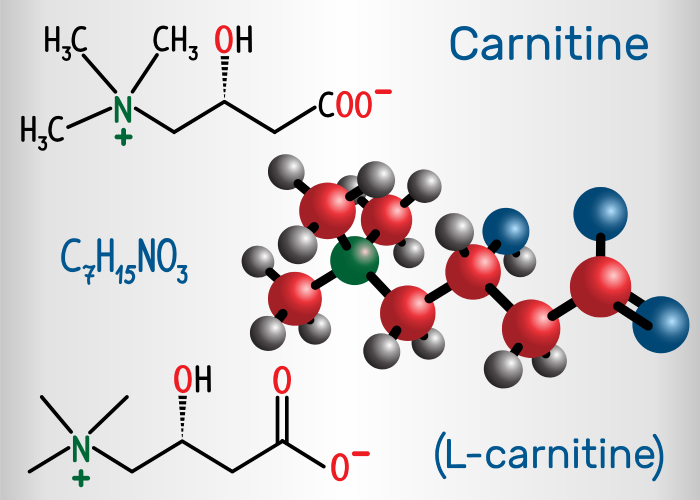Hey there, health enthusiasts and curious cats! Buckle up, because we’re about to dive into the fascinating world of fucoxanthin supplements. Trust me, it’s not as intimidating as it sounds – in fact, by the end of this article, you might just be calling fucoxanthin your new BFF (Best Functional Food, that is).
What in the World is Fucoxanthin?
Okay, let’s start with the basics. What is fucoxanthin? It’s like that cool, mysterious transfer student who just joined your class. Fucoxanthin is a pigment found in certain types of seaweed, particularly brown algae like wakame and hijiki. Now, before you start thinking, “Ew, seaweed?” let me tell you, this isn’t your average sushi wrap.

Fucoxanthin is part of a group called carotenoids – yeah, the same family that gives carrots their orange hue. But instead of making things orange, fucoxanthin gives seaweed its characteristic brown color. It’s like nature’s very own Instagram filter!
The Superhero Origins of Fucoxanthin
So, where does this wonder-pigment come from? Well, imagine the vast, mysterious depths of the ocean. That’s where our hero, fucoxanthin, is born. It’s primarily extracted from various species of brown seaweed, which are like the unsung heroes of the marine world.
These seaweeds use fucoxanthin to absorb light energy and protect themselves from the harsh marine environment. It’s like their personal sunscreen and energy drink rolled into one. And now, thanks to modern science, we can harness this power for ourselves through fucoxanthin supplements. Talk about a glow-up!
Fucoxanthin Benefits: More Than Just a Pretty Pigment
Now, you might be thinking, “Okay, it’s from seaweed. So what?” Well, hold onto your kale smoothies, folks, because the benefits of fucoxanthin are about to blow your mind with an impressive list of potential perks.
-
Weight Loss Wonder:
First up on our hit parade of fucoxanthin benefits is its potential as a weight loss aid. It’s like having a personal trainer in a capsule! Studies suggest that fucoxanthin might help boost metabolism and promote fat burning, particularly in the abdominal area. Who doesn’t want a flatter tummy, right?
-
Antioxidant Extraordinaire:
Fucoxanthin is packed with antioxidants. It’s like sending a superhero squad to fight off those nasty free radicals in your body. This could help protect your cells from damage and potentially reduce the risk of chronic diseases.
-
Blood Sugar Balancer:
Some research indicates that fucoxanthin might help regulate blood sugar levels. It’s like having a traffic cop for your glucose highway, keeping things moving smoothly.
-
Heart Health Hero:
Early studies suggest that fucoxanthin could support heart health by helping to manage cholesterol levels. It’s like giving your ticker a little love note every day.
-
Brain Booster:
There’s some evidence that fucoxanthin might have neuroprotective properties. It’s like giving your brain cells a cozy security blanket.
But Wait, There’s More! L-Carnitine with Fucoxanthin

Now, hold onto your hats, because we’re about to kick things up a notch. Have you heard about l-carnitine with fucoxanthin? It’s like the dynamic duo of the supplement world!
L-carnitine is an amino acid that plays a crucial role in energy production. When combined with fucoxanthin, it’s like they’re throwing a fat-burning party in your body! Many l-carnitine with fucoxanthin reviews rave about the potential synergistic effects of these two ingredients.
The combo of l-carnitine with fucoxanthin is thought to:
– Boost metabolism even more than fucoxanthin alone
– Enhance energy levels (goodbye, afternoon slump!)
– Support faster recovery after workouts
It’s like having your cake and eating it too – except in this case, it’s more like having your seaweed and burning fat too!
The Flip Side: Fucoxanthin Side Effects
Now, I know what you’re thinking. “This sounds too good to be true! What’s the catch?” Well, my friend, while fucoxanthin supplements are generally considered safe, it’s always important to be aware of potential side effects of fucoxanthin.
Some people might experience:
– Mild digestive discomfort
– Skin rash (in rare cases)
– Increased sensitivity to sunlight
It’s also worth noting that fucoxanthin supplements may interact with certain medications. So, as always, it’s best to chat with your doctor before starting any new supplement regimen. They’re like the wise owl in the forest of health – always there to guide you!
How to Choose the Best Fucoxanthin Supplement
Alright, so you’re sold on the idea of fucoxanthin. But with so many options out there, how do you choose the best fucoxanthin supplement? Don’t worry, I’ve got you covered!
- Check the Source: Look for supplements that source their fucoxanthin from high-quality seaweed extracts.
- Dosage Matters: Most studies have used doses between 2.4 to 8 mg per day. Start low and work your way up.
- Combination Products: Consider l-carnitine with fucoxanthin supplements for potentially enhanced effects.
- Third-Party Testing: Choose brands that have their products tested by independent labs for purity and potency.
- Form Factors: Fucoxanthin supplements come in various forms – capsules, powders, and even gummies. Choose what works best for your lifestyle.
Remember, the best fucoxanthin supplement for you might not be the same as for your bestie. It’s all about finding what works for your body and your goals.
Fucoxanthin for Weight Loss: The Skinny on Fat Burning
Let’s dive a little deeper into one of the most popular reasons people turn to fucoxanthin – weight loss. Fucoxanthin for weight loss has been generating quite a buzz in the health and wellness community.
Here’s the deal: Fucoxanthin is thought to target a specific protein called UCP1 (Uncoupling Protein 1). This protein is like the foreman at a construction site, but instead of building things, it’s responsible for burning fat. Fucoxanthin might help increase the activity of UCP1, particularly in white adipose tissue (that’s the stubborn fat that likes to hang around your midsection).
But before you start planning your fucoxanthin-fueled beach body reveal, remember that it’s not a magic pill. Fucoxanthin works best when combined with a healthy diet and regular exercise. It’s like adding a turbo boost to your already-running weight loss engine.
The Fucoxanthin Fat Burner Phenomenon
You might have seen products marketed as “fucoxanthin fat burner” supplements. These often combine fucoxanthin with other ingredients known to support weight loss, like green tea extract or caffeine.
While these combos can be effective, it’s important to approach them with a critical eye. Not all fat burners are created equal, and some may contain ingredients that could cause unwanted side effects. Always read the label carefully and consult with a healthcare professional before starting any new supplement regimen.
Fuxoxanthin: A Rose by Any Other Name
You might occasionally see fucoxanthin spelled as “fuxoxanthin”. Don’t worry, it’s not a totally different compound – just a common misspelling. Whether you’re looking for fucoxanthin or fuxoxanthin, you’re on the right track!
The Pomegranate Plot Twist: Fucoxanthin Pomegranate Seed Oil

Just when you thought we’d covered it all, enter fucoxanthin pomegranate seed oil. This dynamic duo is like the power couple of the supplement world.
Pomegranate seed oil is rich in punicic acid, a type of omega-5 fatty acid with its own impressive list of potential health benefits. When combined with fucoxanthin, it’s like creating a superpowered health elixir.
The potential benefits of this combo include:
– Enhanced antioxidant effects
– Improved skin health
– Additional support for heart health
It’s like giving your body a double dose of goodness!
How to Use Fucoxanthin Supplements
Now that you’re all excited about fucoxanthin, you might be wondering, “How do I actually use this stuff?” Great question! Here’s a quick guide to help you make the most of your fucoxanthin supplement:
- Start Slow: Begin with a lower dose and gradually increase it over time. This allows your body to adjust and helps you identify any potential sensitivities.
- Consistency is Key: Like most supplements, fucoxanthin works best when taken regularly. Make it part of your daily routine, like your morning coffee or evening skincare ritual.
- Timing Matters: Some studies suggest taking fucoxanthin with meals, especially those containing fats, as it may enhance absorption. It’s like giving your fucoxanthin a first-class ticket to your bloodstream!
- Pair with Exercise: While fucoxanthin can be beneficial on its own, combining it with regular exercise might amplify its fat-burning effects. It’s like giving your workout a little extra oomph!
- Be Patient: Rome wasn’t built in a day, and neither is your dream body. Give fucoxanthin time to work its magic – most studies run for several weeks to months.
The Science Behind Fucoxanthin Supplements
Now, let’s get a bit nerdy for a moment (don’t worry, I’ll keep it fun!). The science behind fucoxanthin supplements is pretty fascinating. Researchers have been studying this golden pigment for years, and here’s what they’ve found:
- Metabolic Boost: Fucoxanthin seems to increase the expression of thermogenin, also known as UCP1, in white adipose tissue. It’s like turning up the thermostat in your fat cells!
- Antioxidant Power: As a carotenoid, fucoxanthin acts as a powerful antioxidant, helping to neutralize harmful free radicals in your body. It’s like having a team of tiny superheroes fighting off the bad guys in your cells.
- Anti-Inflammatory Properties: Some studies suggest that fucoxanthin may help reduce inflammation in the body. It’s like having a soothing balm for your insides.
- Potential Anti-Cancer Effects: While more research is needed, early studies hint at possible anti-cancer properties of fucoxanthin. It’s like giving cancer cells the stink eye!
Remember, while the science is promising, more research is needed to fully understand all the potential benefits of fucoxanthin supplements. It’s always a good idea to approach any supplement with a healthy dose of skepticism and consult with a healthcare professional.
Fucoxanthin in Your Diet: Can You Get It From Food?
While fucoxanthin supplements are a convenient way to get this nutrient, you might be wondering if you can get fucoxanthin from your diet. The answer is yes, but with a catch.
Fucoxanthin is primarily found in brown seaweeds like:
– Wakame
– Hijiki
– Kombu
However, the amount of fucoxanthin in these seaweeds can vary greatly depending on factors like season, location, and processing methods. Plus, you’d need to eat a lot of seaweed to get the same amount of fucoxanthin found in supplements.
That said, incorporating seaweed into your diet can be a delicious way to get a natural dose of fucoxanthin along with other beneficial nutrients. Try adding wakame to your miso soup or sprinkling hijiki on your salad. It’s like giving your meals a little beach vacation!
L-Carnitine with Fucoxanthin: A Dynamic Duo
We touched on this earlier, but let’s dive a bit deeper into the combo of l-carnitine with fucoxanthin. This pairing is becoming increasingly popular in the world of weight loss supplements, and for good reason!
L-carnitine is an amino acid that plays a crucial role in energy production. It helps transport fatty acids into your cells’ mitochondria, where they can be burned for energy. When combined with fucoxanthin, it’s like creating a fat-burning dream team.
The potential benefits of l-carnitine with fucoxanthin include:
– Enhanced fat metabolism
– Increased energy levels
– Improved exercise performance
– Faster post-workout recovery
Many l-carnitine with fucoxanthin reviews report positive results, but as always, individual experiences may vary. It’s like finding the perfect dance partner – when these two ingredients work well together, magic can happen!
Fucoxanthin Side Effects: What to Watch Out For
While fucoxanthin is generally considered safe, it’s important to be aware of potential side effects. Remember, everyone’s body is different, and what works for one person might not work for another.
Some reported side effects of fucoxanthin include:
– Digestive issues like bloating or diarrhea
– Skin rash or itching (in rare cases)
– Increased sensitivity to sunlight
If you experience any of these side effects, it’s best to stop taking the supplement and consult with your healthcare provider. It’s like having a fire drill – better to be safe than sorry!
The Future of Fucoxanthin: What’s Next?
As research on fucoxanthin continues, we’re likely to learn even more about its potential benefits and applications. Some areas of ongoing research include:
- Diabetes Management: Early studies suggest fucoxanthin might help improve insulin sensitivity.
- Cancer Prevention: Researchers are exploring fucoxanthin’s potential anti-cancer properties.
- Skin Health: Some studies hint at fucoxanthin’s ability to protect skin from UV damage.
- Brain Health: There’s growing interest in fucoxanthin’s potential neuroprotective effects.
It’s an exciting time in the world of fucoxanthin research. Who knows what other benefits we might discover? It’s like being on the cusp of a health revolution!
Conclusion: Is a Fucoxanthin Supplement Right for You?
So, after this deep dive into the world of fucoxanthin supplements, you might be wondering if it’s right for you. Here’s the thing – while fucoxanthin shows a lot of promise, it’s not a magic bullet. Like any supplement, it works best as part of a healthy lifestyle that includes a balanced diet and regular exercise.
If you’re considering adding a fucoxanthin supplement to your routine, here are a few things to keep in mind:
- Goals: Are you looking for support with weight management, antioxidant protection, or general health? Fucoxanthin might help with these areas.
- Diet: If you don’t eat a lot of seaweed, a fucoxanthin supplement could be a way to get this nutrient.
- Health Status: If you have any existing health conditions or are taking medications, check with your doctor before starting any new supplement.
- Quality: Look for high-quality fucoxanthin supplements from reputable brands. Remember, not all supplements are created equal!
- Patience: Give it time to work. Most studies on fucoxanthin run for several weeks to months.
In the end, whether or not to try a fucoxanthin supplement is a personal decision. It’s like choosing a new adventure – exciting, but it’s always good to be prepared!
Remember, the world of health and nutrition is always evolving, and fucoxanthin is just one piece of the puzzle. Stay curious, stay informed, and most importantly, listen to your body. Here’s to your health, fucoxanthin fans!



